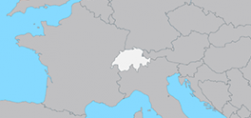NATO assistance to stockpile management, weapons destruction, reintegration project in Mauritania
As part of its Mauritania I Partneship for Peace (PfP) and Mediterranean Dialogue (MD) Trust Fund project, NATO conducted several disarmament, demobilization and reintegration activities in the country. These activities included:
(I) The construction of two reference ammunition depots, one in Aleg and one in Akjoujt: These depots were built according to NATO safety and security standards to store up to 1,300 tonnes of ammunition. The scope of this activity was to reduce the possibility for ammunition to be seized by terrorist groups and removing the risk for civilians to be injured in case of an accident. In addition, these depots could serve also as reference both in term of infrastructure and management for any other depot that the Mauritanian National Army (MNA) might build in the future;
(II) The implementation of an Ammunition Stockpile Management Training Programme (delivered in both French and Arabic) aimed at building MNA personnel’s capacity to manage the new ammunition depots. Fourteen personnel members were successfully trained to basic storeman level and six to ammunition depot manager level. In addition, relevant equipment was delivered to operate the two depots (such as forklift, trolleys, tables, tools, hand-pallet transporter) and MNA personnel was trained for its proper use.
(II) The safe and secure destruction of 1,747 tonnes of stockpiled ammunition, 141 MANPADS and of 2,210 Small Arms Light Weapons (SALW). These activities also included the delivery of theoretical and practical refresher training to qualified pyrotechnics and training to use correctly the the procured SALW destruction equipment and personnel protective equipment.
(III) The support to the MNA Program for Reintegration of Redundant Military Personnel. This included to enhance the hosting capacity at the CFTAN through the construction of a dormitory equipped with 125 beds and a canteen with a 100 seat capacity and the training of military personnel prior to returning to civilian life to five specialties: electricity, carpentry, plumbing, welding and masonry.
The project was led by Italy and funded by the governments of Italy, Germany, Luxemburg, Mauritania, Spain, Switzerland, Turkey, United Kingdom, and United States.
This NATO project on assistance to stockpile management, weapons destruction, reintegration in Mauritania was funded through the NATO Trust Fund Mechanism. In 1999, NATO established the NATO Partnership for Peace (PfP) Trust Fund mechanism to assist partners with risks related to ageing arms, ammunition, anti-personnel mines, missiles, rocket fuel, chemicals and unexploded ordnance. The NATO PfP Trust Fund Policy was initially established in September 2000 in order to assist partners in meeting the Ottawa Convention obligations. The policy then expanded to include the destruction of SALW, ammunition and mines, improving their physical security and stockpile management, and also address the consequences of defence reform. NATO Allies and partners fund and execute these projects through NATO Support and Procurement Agency (NSPA) as the main executing agent. Each project has a lead nation(s), which oversees the development of project proposals along with the NATO International Staff and the executing agent. Trust Fund projects may be initiated by a NATO member or partner country to tackle specific issues and they are funded by voluntary contributions from individual NATO Allies, partner countries, and more recently also NGOs. They are often implemented in cooperation with other international organisations and NGOs. NATO/PfP Trust Fund mechanisms have also been extended to countries part of the NATO’s Mediterranean Dialogue.













North Atlantic Treaty Organization (NATO)
Léopold III Laan 1110
1130 Evere
Belgium,
Tel.: +32 2 707 41 11
E-mail: salw@hq.nato.int





